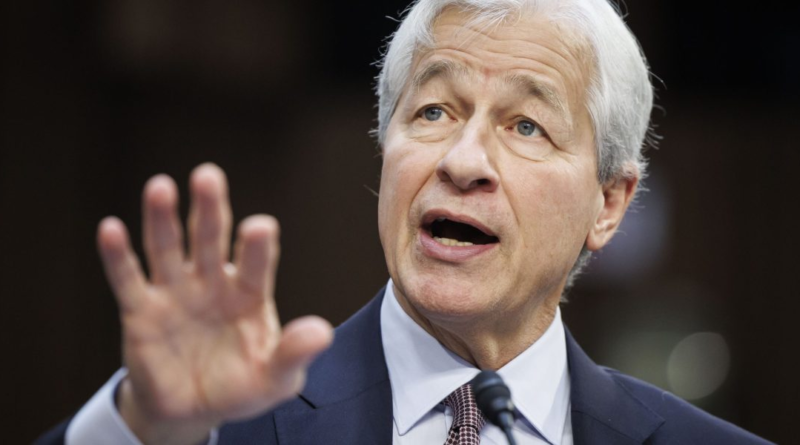Jamie Dimon says to get a job at JPMorgan, what you study in college ‘almost doesn’t matter’
Any soon-to-be college grads looking to land a job at JPMorgan Chase need not worry about what they major in.
Those instructions come directly from the company’s CEO Jamie Dimon. In an interview earlier this week, Wall Street Journal editor-in-chief Emma Tucker asked Dimon what a young person who wanted to work at the $556 billion financial firm should study.
“It almost doesn’t matter to tell you the truth because you’re looking for smart, ethical, decent people,” Dimon replied.
Although JPMorgan takes a more holistic approach in hiring campus recruits, it does still have a preference for those with backgrounds related to finance.
“I do think in business you should learn the language of business which is accounting—a little basic business,” Dimon said. “I think it would help to do accounting, finance, [or] markets. Something like that.”
The comments might come as a surprise to some who expected that one of the most successful CEOs on Wall Street would say it’s imperative for aspiring bankers to study only finance or math. But a focus on hiring well-rounded, albeit still experienced, candidates for open jobs is a growing trend. No longer are companies only looking for a select group of prospective employees. Being open to candidates from different majors can help employers sustain a broader pool of candidates.
“We value and recognize that talent is not limited to any particular group and that diverse experiences, perspectives and backgrounds enrich our workforce and contribute to our collective success,” a JPM spokesperson said in an email. They also explained that the bank hires candidates with various college degrees because it fills roles outside of banking such as data science, marketing, HR, and tech.
Instead of only looking at a candidate’s major, JPMorgan prefers to look at cultural fit, according to the company’s chief human resource officer Robin Leopold. The questions JPMorgan recruiters use to evaluate candidates are: “Will they fit into the team?,” Leopold said on LinkedIn’s Get Hired podcast. “How did they show up for the interview? Were they prepared? Were they curious? Do they represent our values?”
Although, even something as intangible as cultural fit is being scrutinized to ensure it’s as equitable as possible. In some corporate circles there’s a move away from simply asking whether a person is a “cultural fit” because doing so can reinforce unconscious bias by only hiring people who are similar to one another. Instead there is a movement to evaluate whether a candidate can be additive to a company’s culture. Critics of hiring for cultural fit alone believe it offers a static view of someone’s talent that doesn’t take into account whether or not they might thrive in a different work environment.
Hiring people from different educational backgrounds can also help increase an organization’s diversity. “[We] definitely think about it from not just a race and gender perspective, we think about it as diversity of thought,” Leopold said.
To try and increase diversity, some companies have gone a step further than what Dimon suggested and gotten rid of college degree requirements altogether. Last year, Linkedin found that job listings that didn’t require a college degree increased by 90%. Some experts expect that trend to proliferate further and eventually become the norm. In the U.S., 61% of high school graduates enroll in college, according to October data from the Labor Department. But lately, a degree hasn’t been the same surefire way to land a job. In 2023, 70% of bachelors degree holders between 20 and 29 years old had jobs, down from 76.4% the year before.
The growing tendency to remove degree requirements from job criteria kicked into high gear during the labor market crunch of the pandemic. As companies were desperate to fill their open roles, they started looking in unusual places and changing their requirements. Some— JPMorgan included—did away with the need for a bachelor’s degree when they realized that more than 60% of Americans don’t have a college degree. A company spokesperson said that 80% of the bank’s current roles for “experienced hires” don’t require a college degree.
“Of course we go to campuses, but that is not the vast majority of where we hire from,” Leopold said during her podcast appearance. “We really have been able to identify talent in all spaces and places, and I think it actually is making our company stronger.”
When speaking about education in the past Dimon has implored colleges and educational institutions to prioritize getting students good jobs over graduation rates. “If you look at kids, they gotta be educated to get jobs,” Dimon said during an interview last month. “I think the schools should be measured on, did the kids get out and get a good job?”




